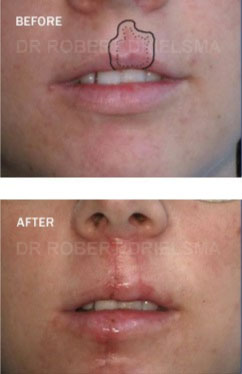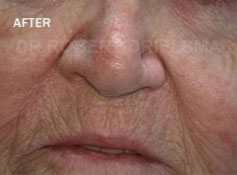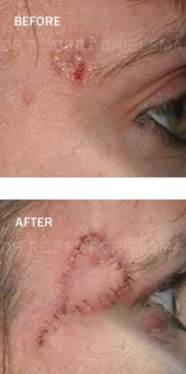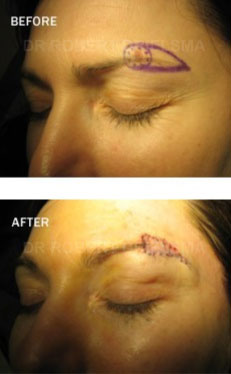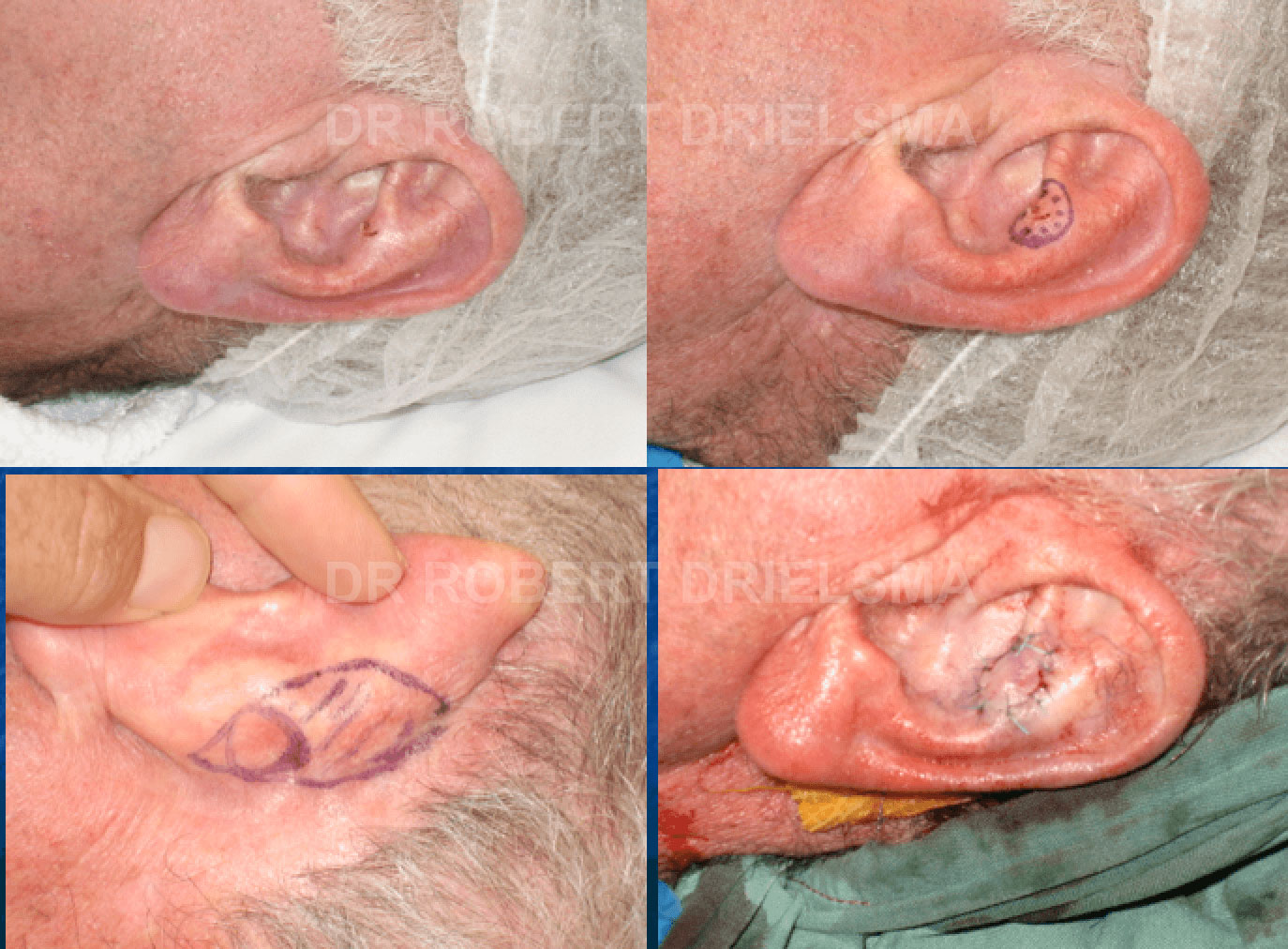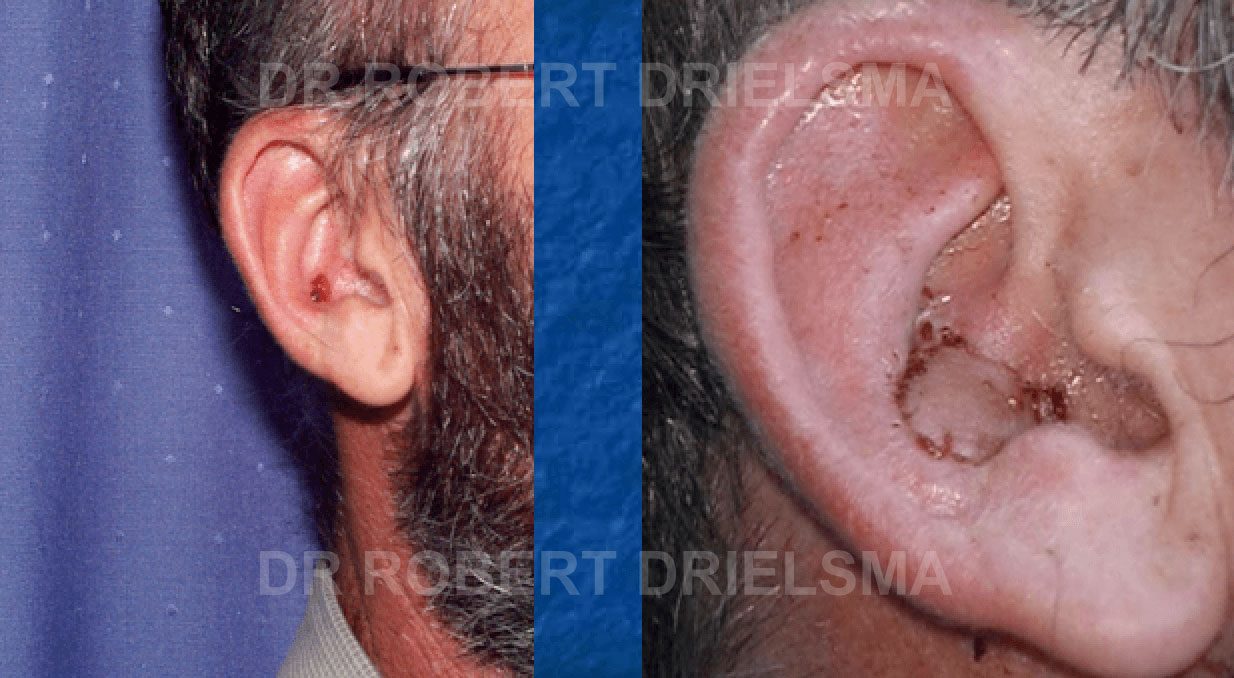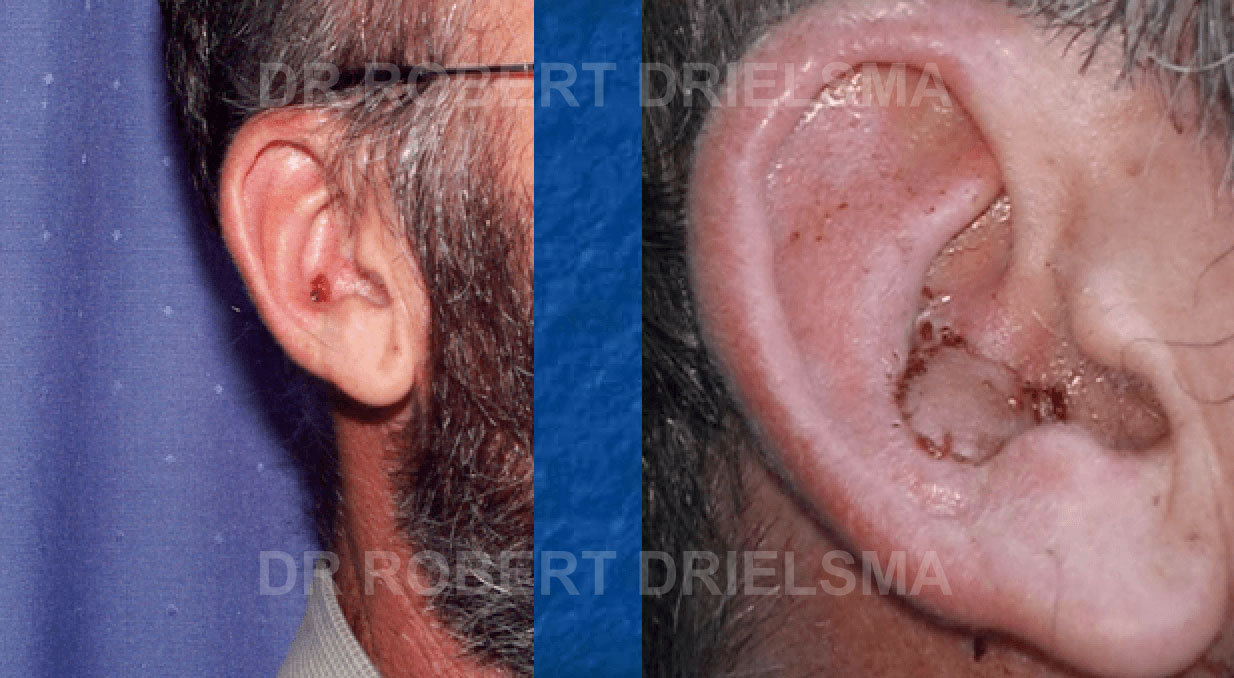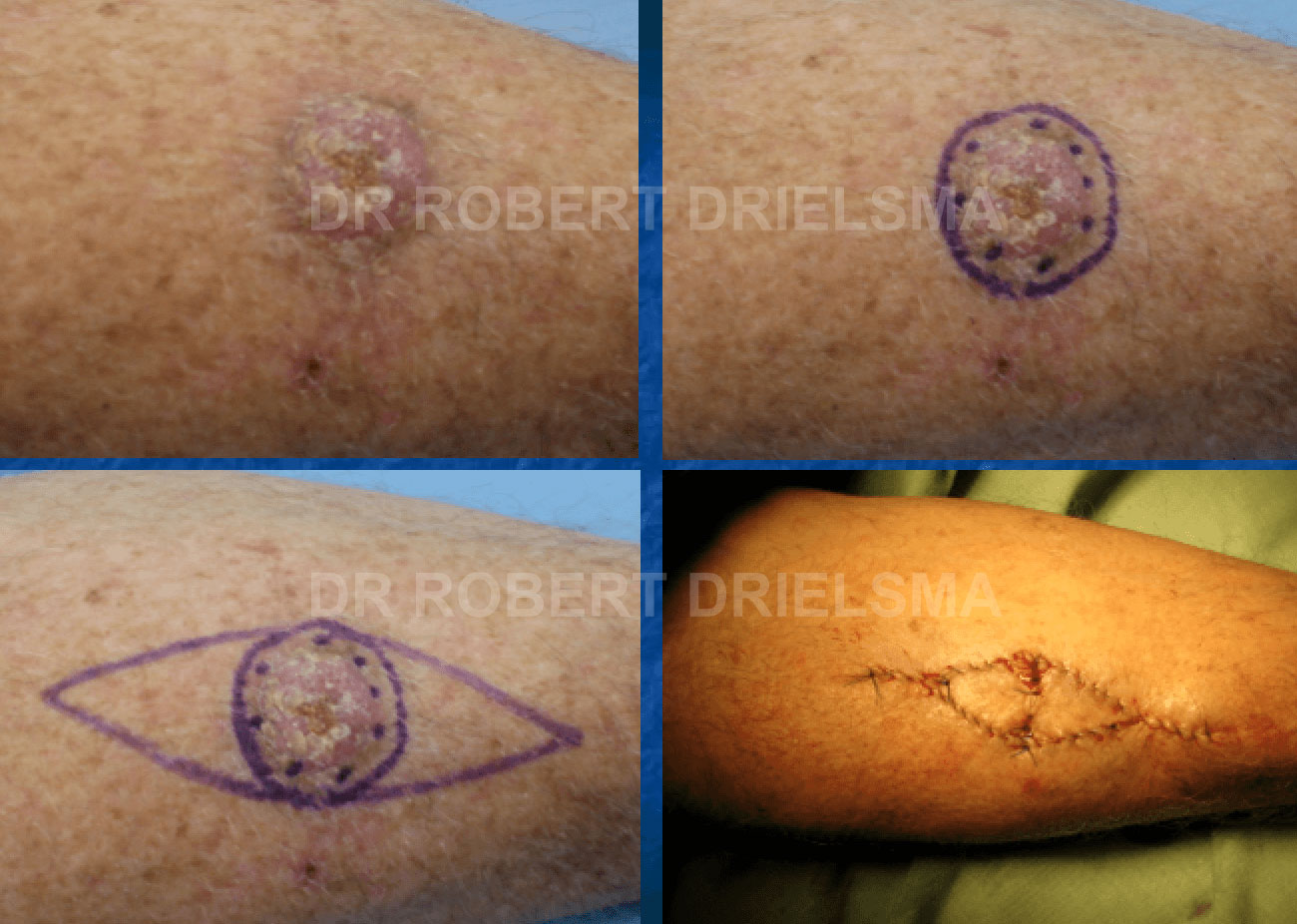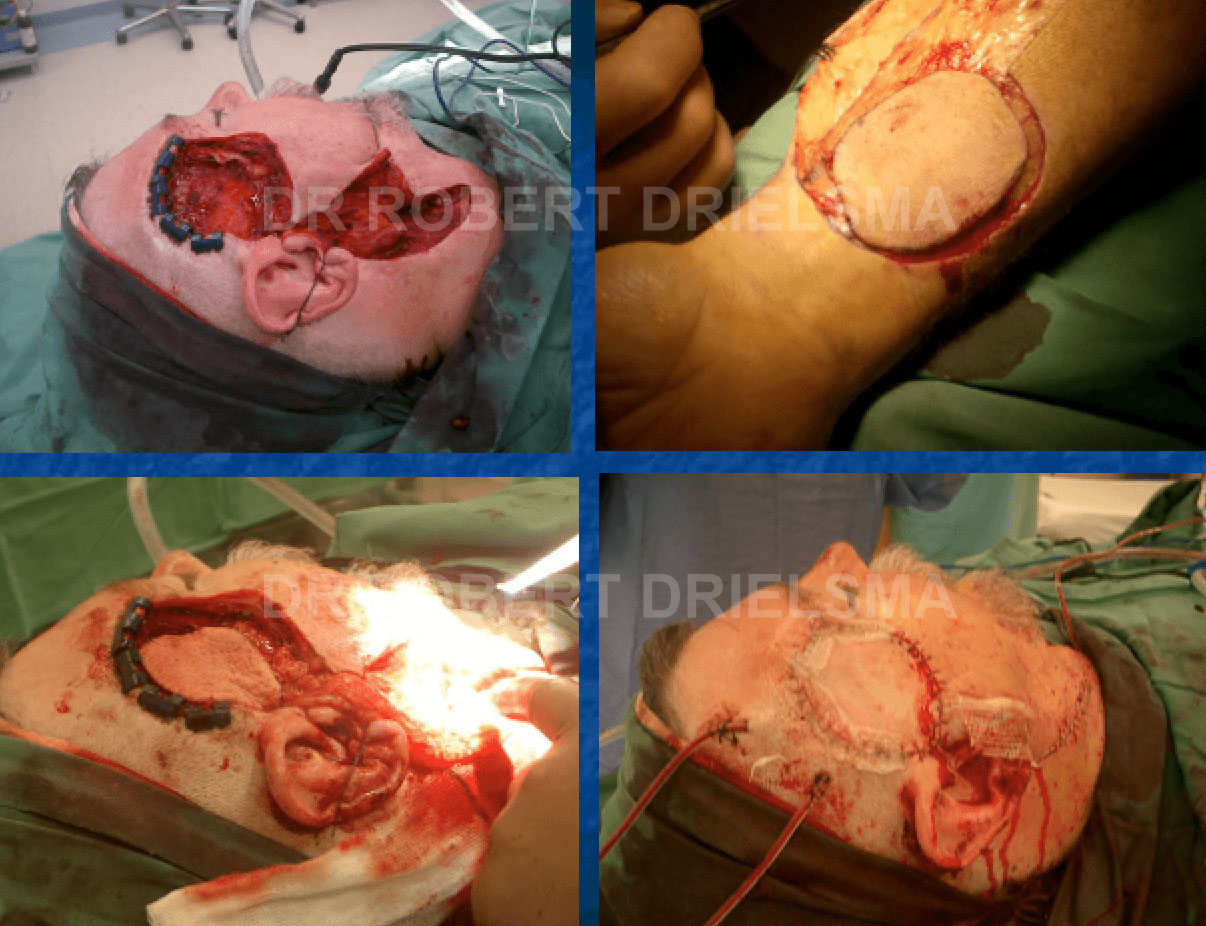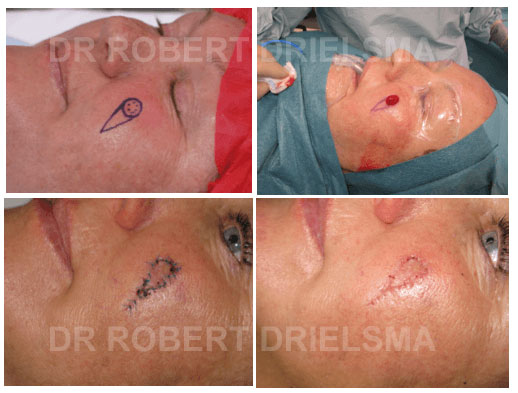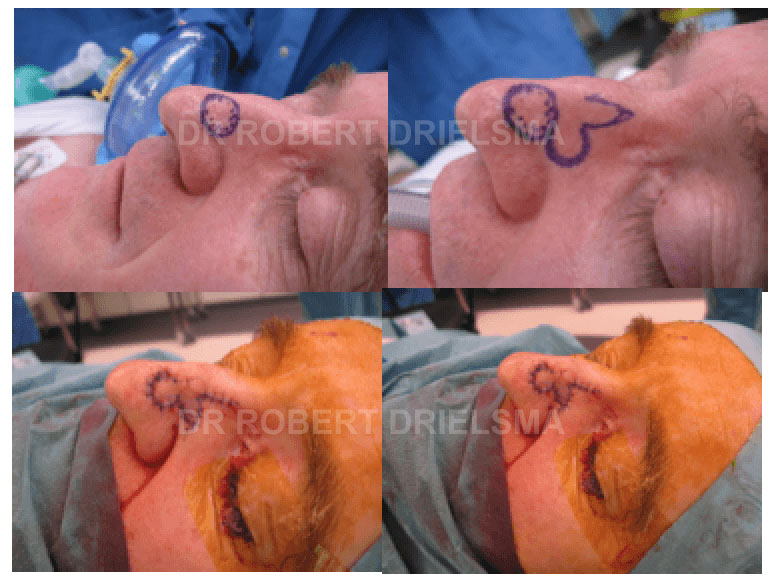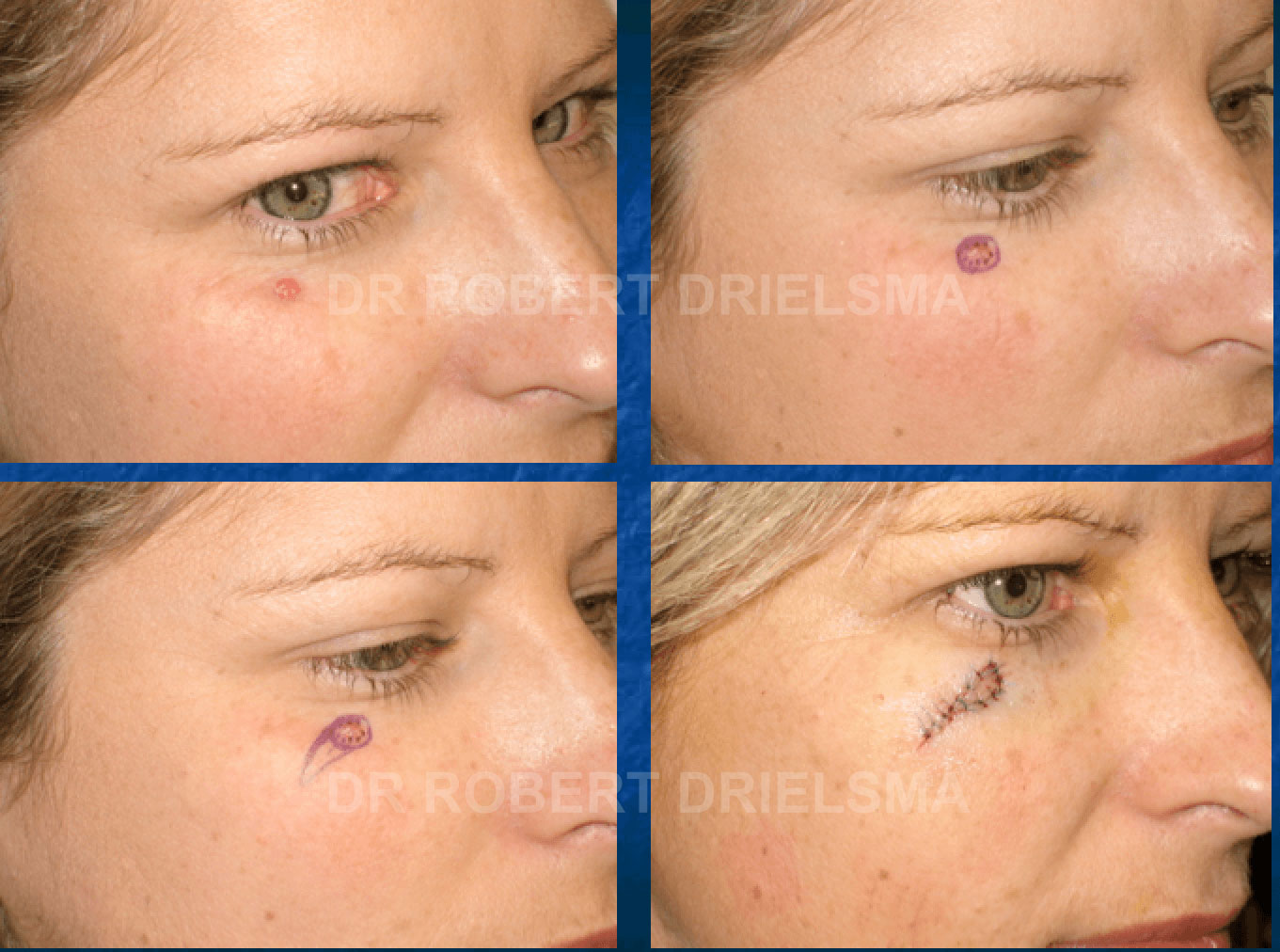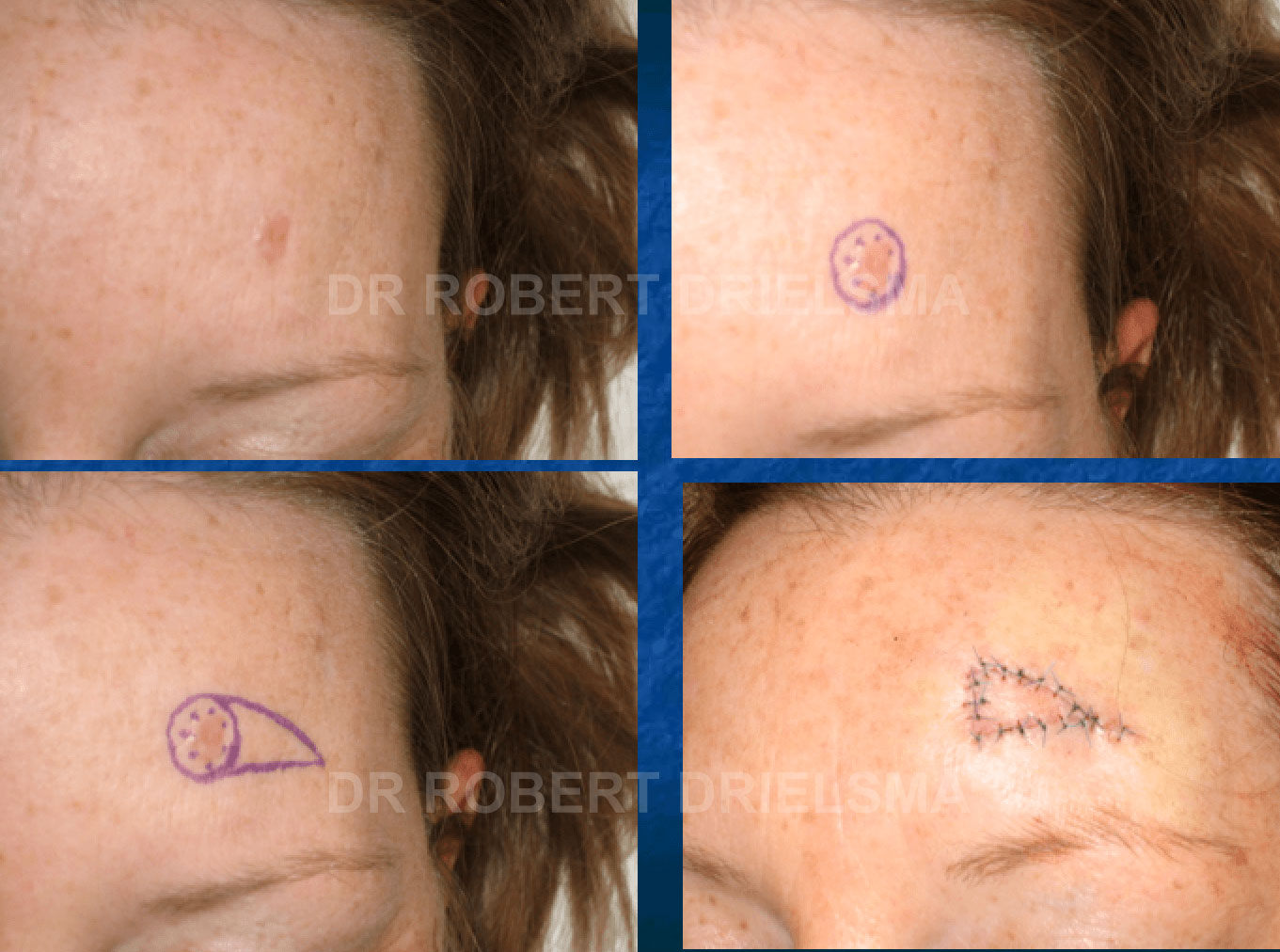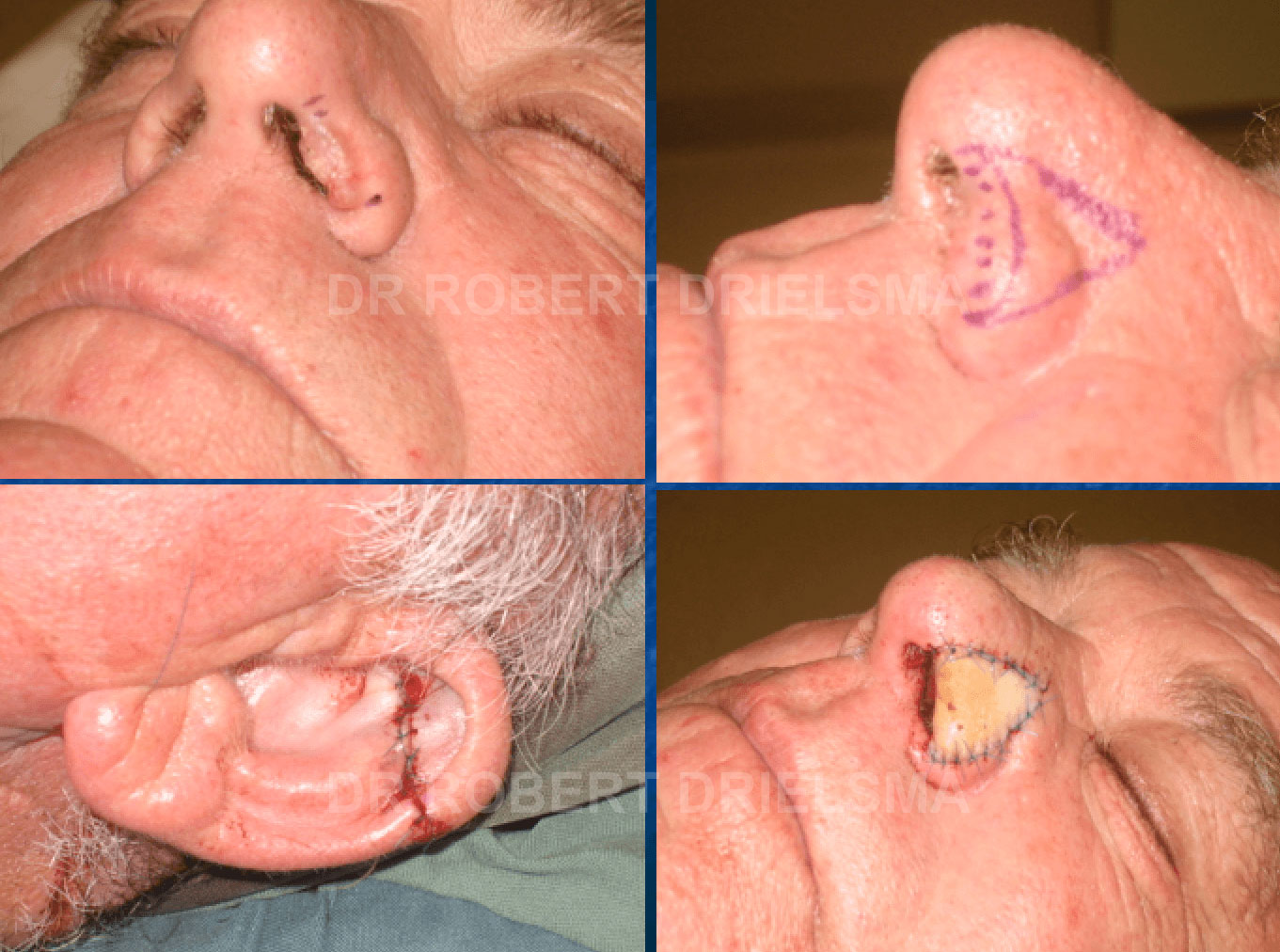
Basal Cell Carcinoma
Basal Cell Carcinoma (BCC) is the commonest type of skin cancer. It is five times more common than the next commonest type (squamous cell carcinoma) and is the least dangerous type of skin cancer. Its main cause is cumulative sun exposure and sun-induced skin damage.
BCC hence tends to occur most commonly on sun exposed areas of the body in older age groups. They are common on the face including nose, ears and around the eyes. They also occur commonly on the top surface of the arms and hands and on the back of individuals who have led a life outdoors of sun exposure. Racial background can play an important role. BCC affects those of Celtic or fair skinned backgrounds more severly, particularly if having spent their lives in high sun exposure.
BCC is slow growing and does not spread to other parts of the body. It, therefore, is very treatable and relatively non-dangerous. It does, however, continue to grow both in its size and its depth. Left untreated or neglected for many years and may cause considerable damage and even death. Its term “rodent” or eating ulcer is well deserved.
Many BCC’s are very typical and easily defined by clinical examination. Many others, however, may look atypical or are not clearly defined. In such cases, a formal biopsy to accurately define diagnosis is important before planning treatment. In such cases, Dr. Drielsma always insists on such formal biopsy and pathological diagnosis before embarking on treatment.
Before and After Gallery
Basal Cell Carcinoma
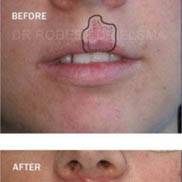
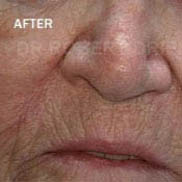
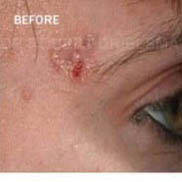
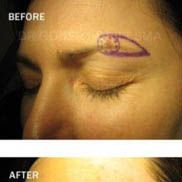
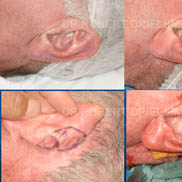
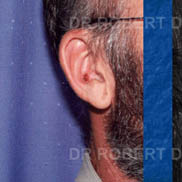
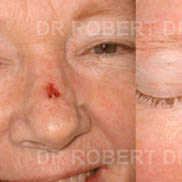
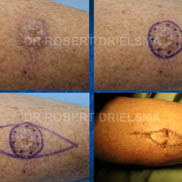
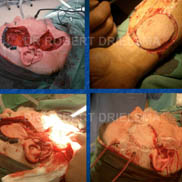
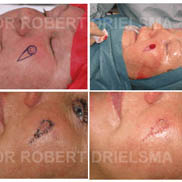
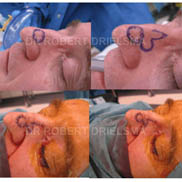
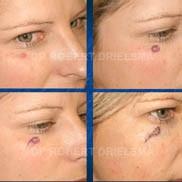
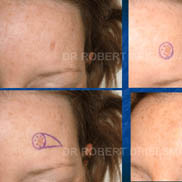
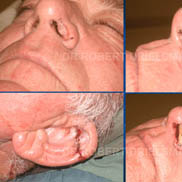
-

Treatment for BCC
-

Squamo-proliferative Tumours Of Skin
-

Squamous Cell Carcinoma
-

Melanoma
-

Other Skin Cancers
Meet our Specialist Plastic Surgeon Dr Robert Drielsma MBBS, BSc(Med), FRACS
(AHPRA MED00001073756)
Dr Drielsma is an Australian trained Specialist Plastic Surgeon with over 30 years of extensive experience in plastic surgery of the face, breasts and body. He is a fellow of the Royal Australasian College of Surgeons (FRACS), a member of the Australian Society of Plastic Surgeons (ASPS) and a member of the Australian Society of Aesthetic Plastic Surgeons (ASAPS)

-
Next Step
- Next Step : Book your Initial Consultation
- What to Bring to your Surgeon Consultation
**Individual results may vary. All surgery carries risks.
You should seek a second opinion from an equally qualified Specialist Plastic Surgeon before proceeding with surgery.


 Before & After
Before & After